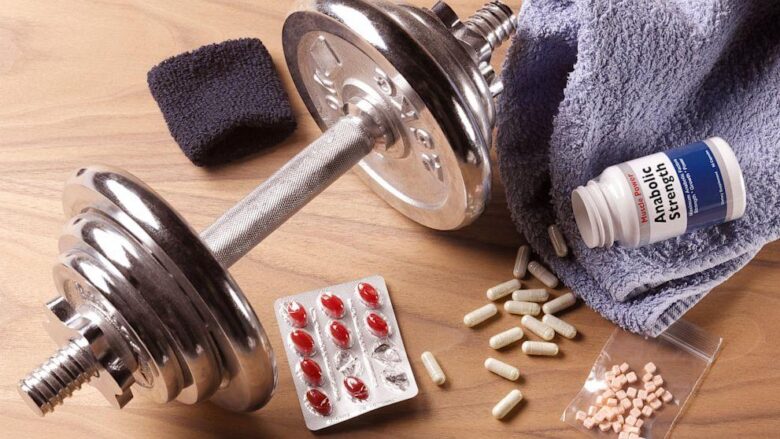In the realm of performance enhancement, where the pursuit of excellence often teeters on the edge of ethics and ambition, testosterone therapy has emerged as a contentious solution. Originally developed for medical purposes, this hormone replacement has drawn the attention of athletes, bodybuilders, and fitness enthusiasts seeking to push the limits of their physical abilities. Like a double-edged sword, testosterone therapy promises increased muscle mass, elevated energy levels, and improved recovery times, but it also carries a host of potential risks and ethical dilemmas. As we delve into the intricacies of this modern phenomenon, we will explore the science behind testosterone therapy, its implications for performance enhancement, and the ongoing debate surrounding its use in both competitive sports and everyday fitness pursuits. Whether hailed as a breakthrough or derided as a shortcut, one thing is clear: the conversation surrounding testosterone therapy is far from straightforward, and understanding its place in the world of performance enhancement is imperative for athletes and enthusiasts alike.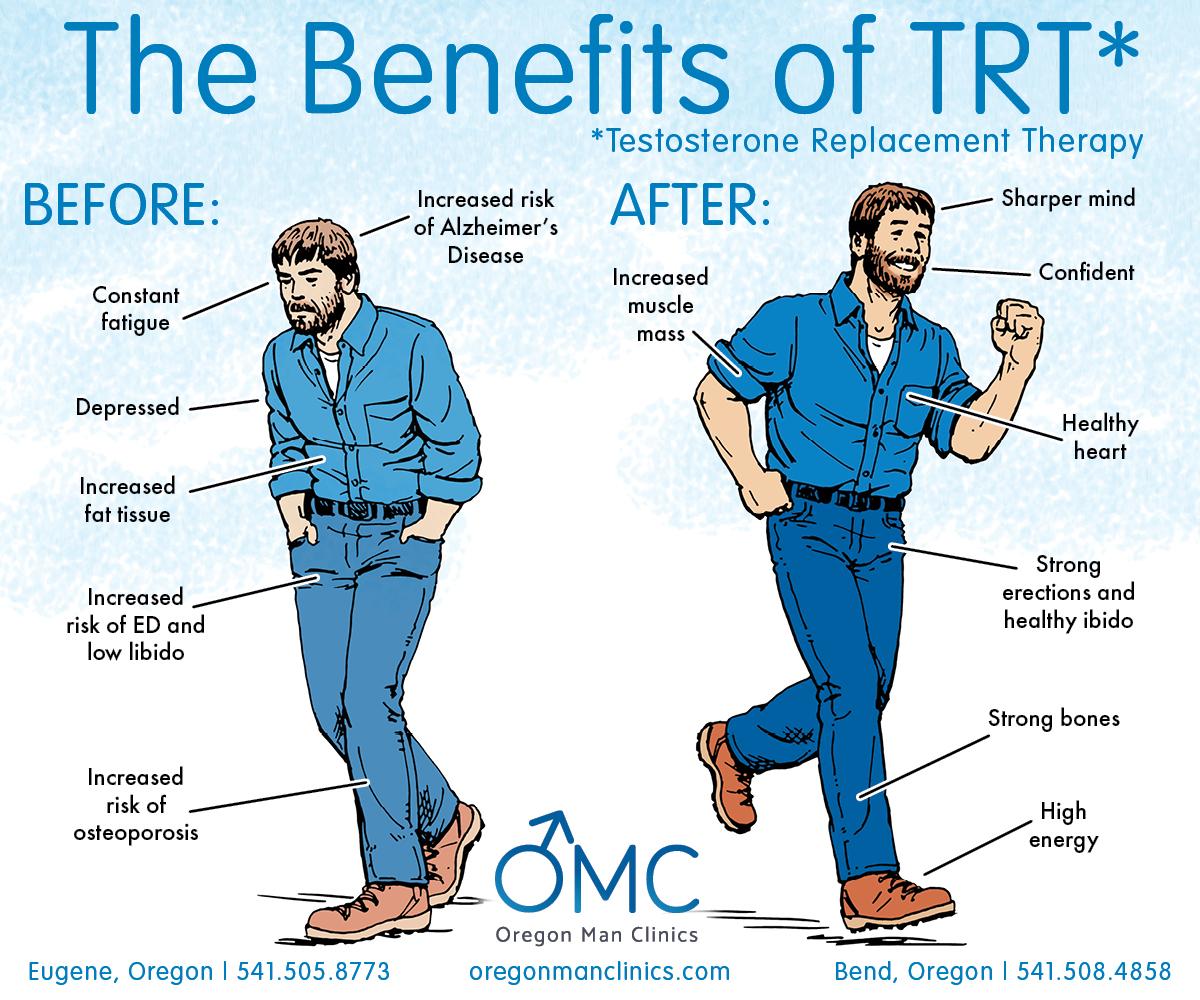
Understanding the Science Behind Testosterone and Athletic Performance
Testosterone is often touted as a key player in athletic performance, primarily due to its role in muscle mass development, strength enhancement, and overall physical recovery. The hormone facilitates protein synthesis and increases the rate at which muscles repair themselves after intense training. This natural anabolic effect not only helps athletes train harder but also boosts endurance levels, enabling them to perform at peak capacity for extended periods. A better understanding of testosterone dynamics allows both athletes and physicians to tailor approaches to performance enhancement, ensuring that the right balance is achieved.
While testosterone therapy may offer benefits such as improved muscle mass and recovery times, it is essential to consider the potential consequences. Engaging in testosterone therapy without medical oversight can lead to serious side effects, including hormonal imbalances, cardiovascular issues, and changes in mood. It is important to weigh these risks against the benefits, making informed choices about pursuing this pathway to enhanced athletic performance. Here are some crucial factors to consider:
- Dosage: Finding the optimal amount that provides benefits without adverse effects is critical.
- Monitoring: Regular check-ups are necessary to track hormone levels and overall health.
- Individual Variation: Responses to therapy can vary greatly among individuals.
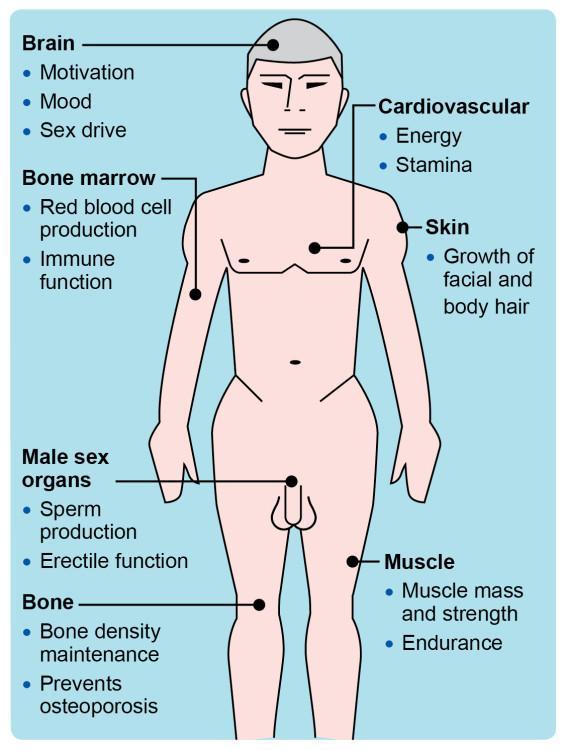
Evaluating the Benefits of Testosterone Therapy in Competitive Sports
When exploring the impact of testosterone therapy in competitive sports, it becomes essential to evaluate its multifold benefits. Testosterone is a key hormone that influences muscle mass, strength, and endurance. Athletes often seek testosterone therapy to enhance their physical performance. Some observed benefits include:
- Increased Muscle Mass: Testosterone facilitates the growth of muscle fibers, leading to significant gains in strength.
- Improved Recovery Time: Athletes on testosterone therapy may experience faster recovery from intense workouts or injuries.
- Enhanced Bone Density: The therapy may bolster bone strength, reducing the risk of fractures and injuries.
- Elevated Mood and Confidence: A balanced testosterone level can positively affect mental well-being, contributing to improved focus and motivation.
Despite the potential advantages, ethical concerns and the risks of abuse are prominent topics in discussions surrounding testosterone therapy for performance enhancement. Regulatory bodies in sports strictly monitor testosterone levels in athletes to maintain fair competition. Here’s a simple comparison of the therapy’s potential risks and rewards:
| Benefits | Risks |
|---|---|
| Increased athletic performance | Possible hormonal imbalance |
| Improved muscle recovery | Potential cardiovascular issues |
| Enhanced energy levels | Psychological effects, such as aggression |
| Boost in competitive edge | Legal ramifications in sports |
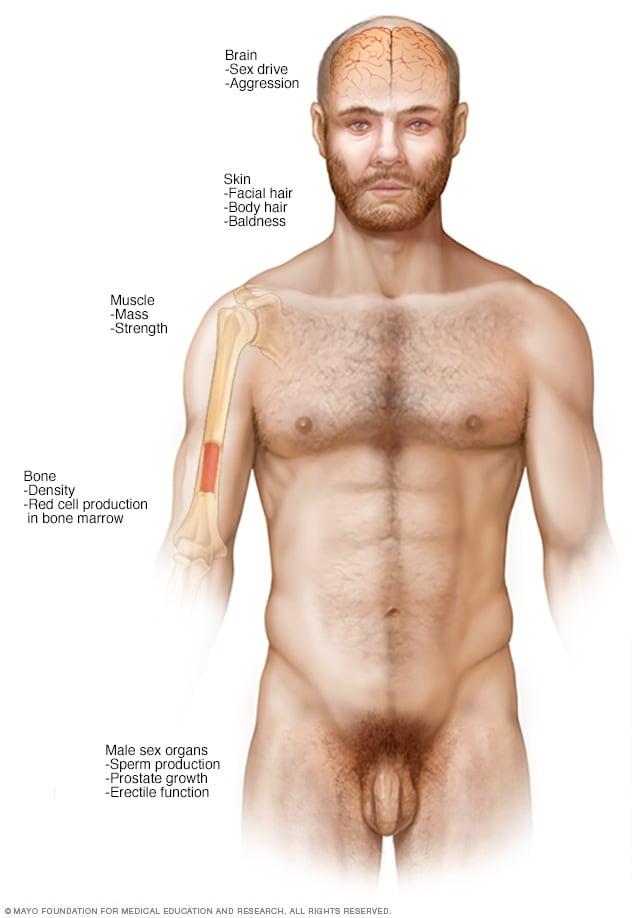
Risks and Ethical Concerns of Using Testosterone for Enhancement
The use of testosterone for enhancement poses various risks that can jeopardize an individual’s health and well-being. These include, but are not limited to:
- Cardiovascular Issues: Increased risk of heart attacks and strokes due to elevated blood pressure and cholesterol levels.
- Hormonal Imbalance: Disruption of the natural hormonal balance can lead to conditions such as gynecomastia and infertility.
- Liver Damage: Long-term usage can cause liver toxicity and other related complications.
- Psychological Effects: Aggressive behavior, mood swings, and heightened anxiety or depression.
Beyond physical health risks, there are significant ethical concerns surrounding the use of testosterone for performance enhancement. These concerns include:
- Fairness in Competition: Use of testosterone can create an uneven playing field in sports, undermining the principles of fairness.
- Influence on Young Athletes: Normalizing performance enhancement can pressure young athletes to engage in risky behaviors to conform.
- Regulatory and Legal Issues: The legality of testosterone use varies by sport and jurisdiction, complicating ethical compliance.
- Informed Consent: Many individuals may not fully understand the risks or have the necessary knowledge to make informed choices.
| Risk | Potential Consequence |
|---|---|
| Cardiovascular Issues | Heart attack or stroke |
| Hormonal Imbalance | Infertility or gynecomastia |
| Liver Damage | Liver failure |
| Psycho-emotional Disturbances | Mood disorders |
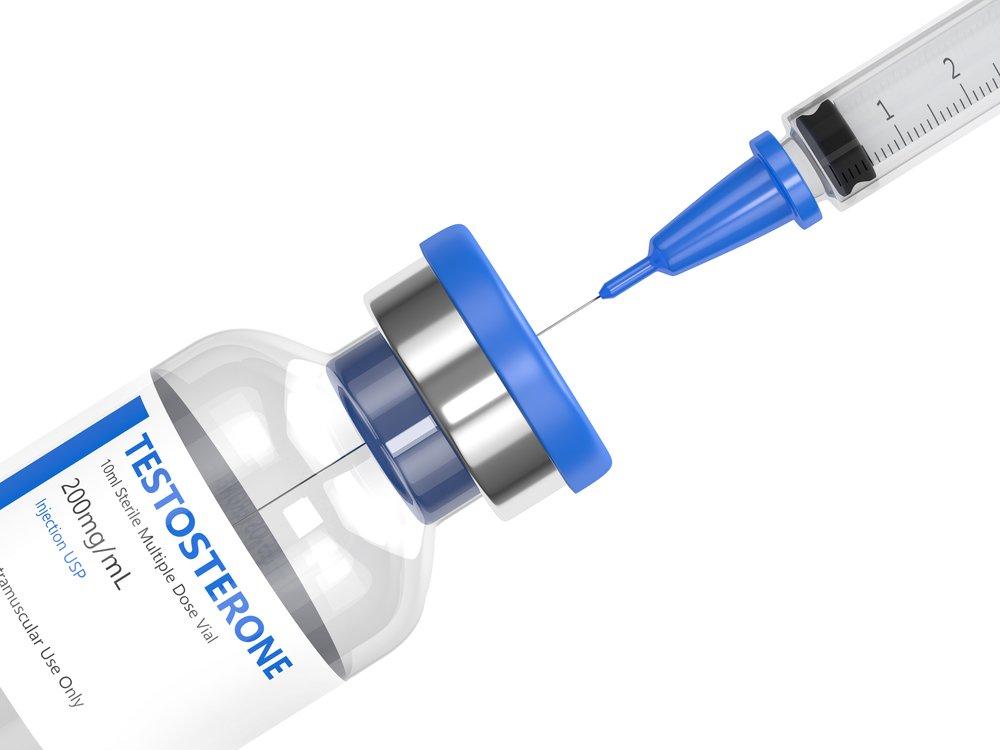
Navigating Legalities: Testosterone Therapy in Professional Athletics
As the landscape of professional athletics evolves, so do the complexities surrounding the use of testosterone therapy. While certain levels of testosterone are naturally occurring and integral to physical performance, the therapeutic use raises significant legal and ethical questions. Athletes must navigate a maze of regulations that vary by sport and governing body, which often have stringent rules about hormone supplementation. Understanding whether testosterone therapy is permissible hinges on criteria such as medical necessity, therapeutic vs. performance-enhancing intent, and adherence to established dosage guidelines. Consequently, athletes are advised to seek clarity from official regulatory bodies to avoid penalties that could jeopardize their careers.
Moreover, the stigma associated with testosterone therapy can lead to misinformation and misperceptions. To better grasp the legal ramifications, athletes should consider the following factors:
- Type of Sport: Different sports have varying thresholds for testosterone levels.
- Medical Documentation: Proper medical evaluation and endorsement are essential.
- Recent Case Studies: Familiarizing themselves with recent controversies can provide insights into enforcement trends.
Ultimately, understanding the boundaries of testosterone therapy in athletics demands thorough research and awareness. The potential for performance enhancement should always be weighed against the legal implications, allowing athletes to make informed decisions about their health and careers.
Personalizing Your Approach: Consultations and Tailored Treatment Plans
When considering testosterone therapy for performance enhancement, it’s essential to recognize that each individual’s health profile and goals are unique. Thus, a thorough consultation process is vital to crafting a treatment plan tailored specifically to your needs. During this initial assessment, our expert team will evaluate your medical history, lifestyle factors, and performance objectives. This collaborative approach ensures that every aspect of your health is taken into account, leading to a more effective and safe enhancement strategy.
A personalized treatment plan may include various modalities, such as:
- Hormonal evaluations: Comprehensive blood tests to gauge testosterone levels.
- Supplement recommendations: Tailored nutritional and dietary supplements to support hormone balance.
- Exercise regimens: Customized fitness plans designed to optimize your physical performance and recovery.
By combining these elements, our goal is to establish a sustainable enhancement path that not only boosts performance but also promotes overall well-being. Here’s a quick overview of how the personalized plan might be structured:
| Plan Component | Description |
|---|---|
| Consultation | In-depth discussion of goals and health status. |
| Testing | Blood and hormonal tests to assess baseline levels. |
| Treatment | Customized testosterone therapy tailored to your needs. |
| Follow-up | Regular check-ins to monitor progress and adjust as needed. |
Monitoring Health: Necessary Tests and Regular Check-ups
Regular monitoring of health is essential for individuals considering testosterone therapy for performance enhancement. Engaging in routine blood tests helps determine the appropriate hormone levels and ensure safety during treatment. Key assessments include:
- Testosterone Levels: Measured to establish a baseline and monitor therapy effects.
- Liver Function Tests: Important to evaluate overall health and check for any potential liver issues.
- Complete Blood Count (CBC): Used to monitor blood parameters and detect anemia.
- Lipid Profile: Assesses cholesterol levels that can be affected by testosterone therapy.
In addition to laboratory tests, regular check-ups with a healthcare provider are crucial. These appointments not only provide an opportunity for discussing symptoms and side effects but also serve as a platform for adjusting treatment protocols. Recommended evaluations include:
| Evaluation Type | Frequency |
|---|---|
| Initial Consultation | Before Therapy |
| Follow-up Visit | Every 3-6 Months |
| Yearly Comprehensive Check-up | Annually |
Choosing a structured approach to health monitoring not only maximizes the benefits of testosterone therapy but also minimizes potential risks associated with performance enhancement. It’s a proactive way to ensure that one’s body responds well to treatment and to adjust clinical strategies promptly.
Incorporating Lifestyle Changes to Maximize Testosterone Therapy Effects
To amplify the effects of testosterone therapy, it’s essential to embrace various lifestyle modifications that synergize with the treatment. Incorporating regular exercise not only improves overall health but also enhances testosterone production. Strength training, in particular, is known for its potential to boost levels significantly. Moreover, maintaining a balanced diet rich in essential nutrients can play a crucial role. Focus on foods that support hormone health, such as:
- Lean proteins (chicken, fish, tofu)
- Healthy fats (avocado, olive oil, nuts)
- Whole grains (quinoa, brown rice)
- Fruits and vegetables (broccoli, leafy greens, berries)
In addition to diet and exercise, other lifestyle factors can significantly impact the efficacy of testosterone therapy. Prioritize quality sleep, as lack of rest can lower testosterone levels. Stress management is also vital; chronic stress elevates cortisol, which can interfere with hormone balance. Below is a simple overview of practices to consider:
| Practice | Benefit |
|---|---|
| Regular Exercise | Boosts testosterone production |
| Balanced Nutrition | Supports overall hormone health |
| Adequate Sleep | Restores hormone levels |
| Mindfulness and Relaxation | Reduces stress and cortisol |
Q&A
Q&A: Understanding Testosterone Therapy for Performance Enhancement
Q1: What is testosterone therapy, and how is it used for performance enhancement?
A1: Testosterone therapy involves the administration of testosterone to elevate levels of this hormone in the body. Athletes and fitness enthusiasts sometimes seek testosterone therapy to improve muscle mass, strength, endurance, and recovery, believing that higher testosterone levels can provide a competitive edge. However, it’s crucial to note that this practice raises ethical questions and potential health risks.
Q2: Who might consider testosterone therapy for performance enhancement?
A2: Individuals who might consider this therapy typically include athletes in strength sports, bodybuilders, and those engaged in high-intensity competitive sports. They may seek to overcome the natural decline in testosterone levels due to aging or intense training routines. However, it’s essential to approach this decision with caution and consult medical professionals to understand all implications.
Q3: What are the potential benefits of testosterone therapy for performance?
A3: Potential benefits include increased muscle mass, improved strength, enhanced recovery times, and potentially better overall stamina during workouts. Some users report heightened motivation and energy levels as well. However, benefits may vary significantly from person to person, and not all effects are guaranteed.
Q4: What are the risks associated with testosterone therapy for performance enhancement?
A4: The risks of testosterone therapy can be substantial and include cardiovascular issues, liver damage, mood swings, infertility, and sleep apnea. Additionally, it can lead to the development of certain types of cancers. The use of testosterone without medical supervision can exacerbate these risks and provide dangerous outcomes.
Q5: Is testosterone therapy legal in sports?
A5: The legality of testosterone therapy in sports varies significantly among different organizations. Many professional sports leagues and governing bodies (such as the World Anti-Doping Agency) prohibit its use for performance enhancement. Athletes caught using it may face suspensions, fines, or bans from competition, highlighting the importance of knowing the regulations that govern one’s sport.
Q6: How does one know if they need testosterone therapy?
A6: Signs of low testosterone may include fatigue, decreased libido, reduced muscle mass, and difficulties with concentration. However, these symptoms can often be related to a variety of health issues. Thus, accurate diagnosis requires thorough testing by a healthcare professional, who can determine if testosterone levels are indeed low and whether therapy is appropriate.
Q7: Are there alternative methods to enhance performance without relying on testosterone therapy?
A7: Yes! Alternatives include optimizing nutrition, maintaining a robust training regimen, ensuring proper rest and recovery, and managing stress levels. Natural supplements, lifestyle changes, and techniques like strength training, agility drills, and endurance workouts may enhance performance sustainably without the risks posed by hormone therapy.
Q8: What advice would you give to someone considering testosterone therapy for performance enhancement?
A8: It’s crucial to prioritize health and safety above all. If considering testosterone therapy, seek guidance from a qualified healthcare professional who can provide tailored advice and conduct necessary evaluations. Explore all alternatives first and stay informed about potential risks and legal consequences in the sports arena. Performance is about more than just numbers; it’s also about well-being.
Concluding Remarks
the journey through the realm of testosterone therapy for performance enhancement is a multifaceted exploration of science, ethics, and human ambition. As athletes and enthusiasts seek to push the boundaries of their physical capabilities, the allure of testosterone as a potential pathway to greater strength and endurance remains compelling. Yet, amidst the promise of improved performance lies a landscape peppered with medical, psychological, and moral complexities.
Decisions about hormone therapy should not be taken lightly; a comprehensive understanding of the potential benefits and risks is essential. Ultimately, the choice to pursue testosterone therapy for enhancement purposes reflects broader themes in sports and society — the quest for excellence, the pursuit of authenticity, and the ongoing dialogue about what it truly means to ‘augment’ human potential. As research continues to evolve, so too will our understanding of how best to navigate this intricate intersection of health and performance. Just as the athlete stands at the starting line, poised for greatness, we too must approach this topic with both caution and curiosity, striving for a balance between ambition and integrity.

